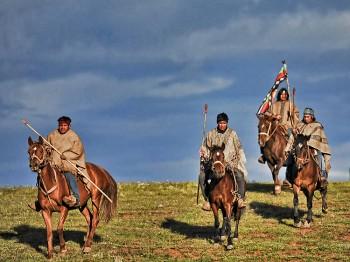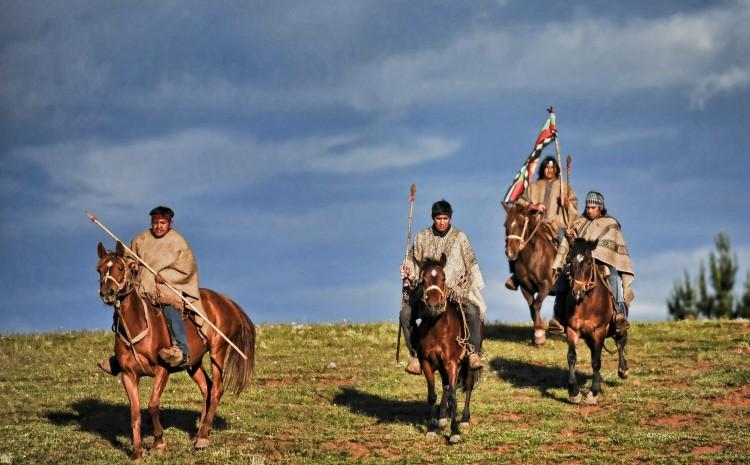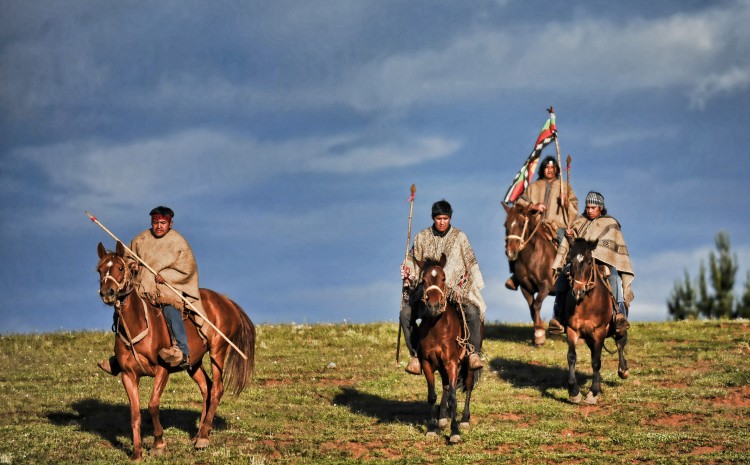The Mapuche Nation: ‘Without land there is no culture’
For the Mapuche people, loss of land means loss of identity and without this life is meaningless.
Land is essential for the development of Mapuche culture; the land has the graves of their ancestors and is where their religious celebrations take effect.

GUARDING ANCESTRAL LAND: Mapuche natives on horseback guard their land in the village of Temucuicui in Temuco, Chile, November 2009. The Mapuche are fighting for the rights to their ancestral lands, which they feel is their identity. Martin BernettiAFP/Getty Images
|Updated:

